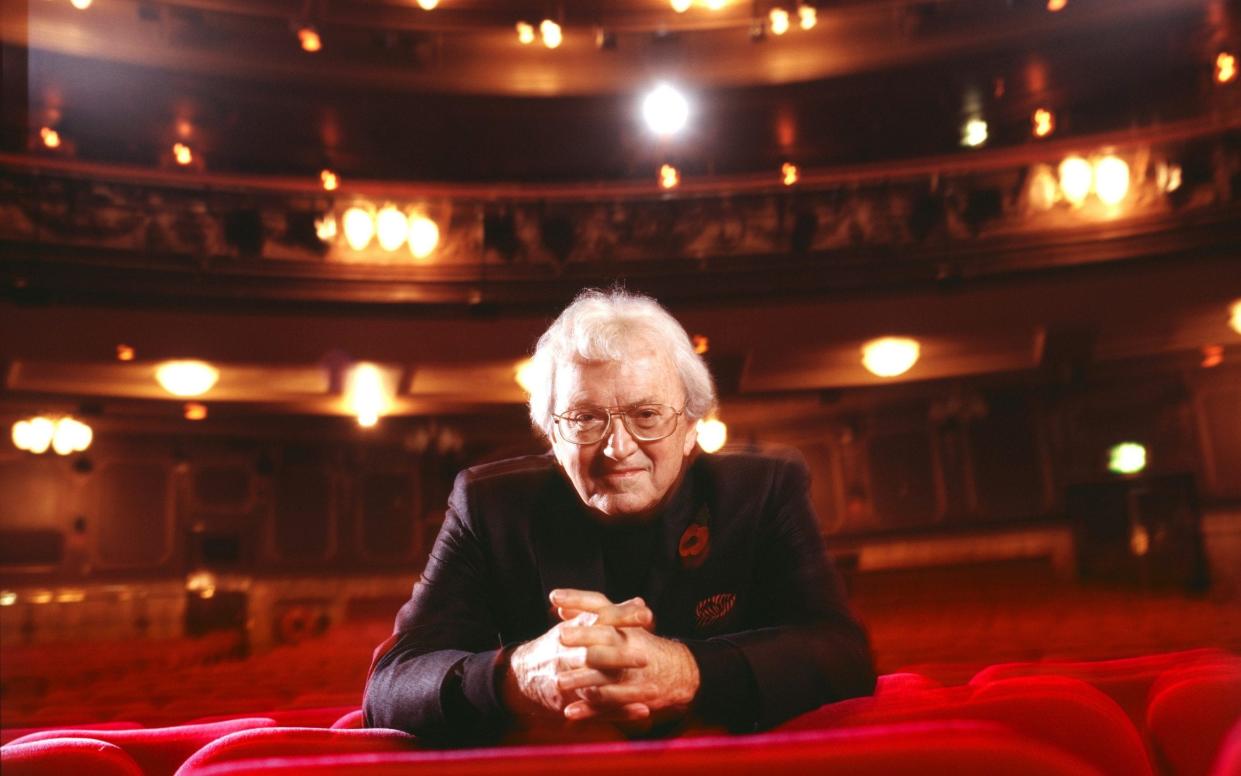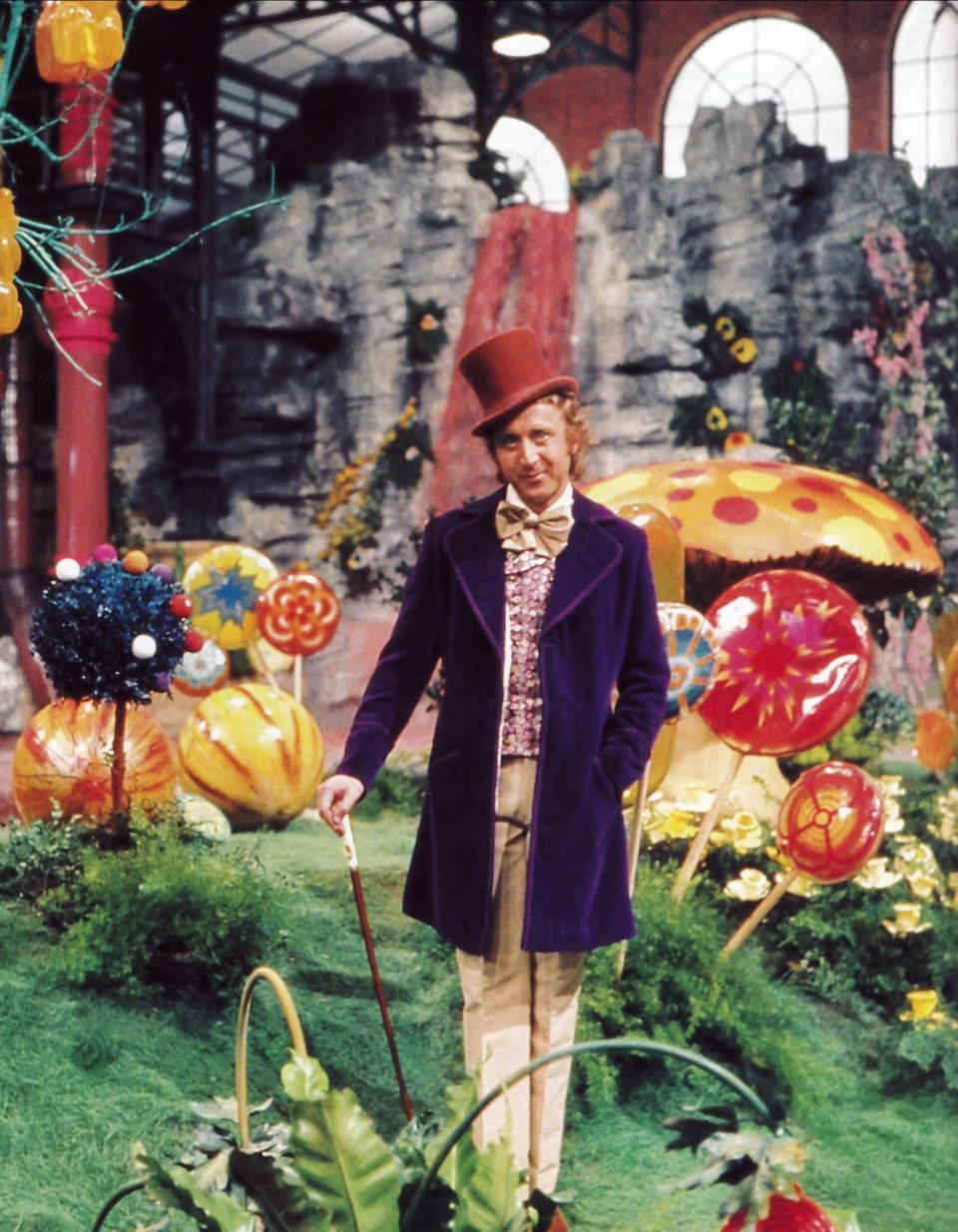Leslie Bricusse, songwriter who wrote lyrics for the Bond films and was best known for Doctor Dolittle and Willy Wonka – obituary

Leslie Bricusse, the British-born composer and lyricist who has died aged 90, was one of the most successful and prolific songwriters of his time, penning songs for more than 40 stage and film musicals and winning two Oscars, one for Best Original Song in 1967 for Talk to the Animals – sung, or to be more accurate, spoken by Rex Harrison in Doctor Dolittle – and the other, Best Original Song Score and its Adaptation, in 1982 for Victor/Victoria, written with the composer Henry Mancini.
Not every reviewer was kind. The Daily Telegraph’s Charles Spencer once described Bricusse as being “responsible for more naff musicals than I, and possibly he, care to remember.” But the awards spoke for themselves. In addition to his Oscars, he won 10 Oscar nominations, in addition to numerous other awards.
He wrote the lyrics for theme songs to the Bond films Goldfinger and You Only Live Twice, as well as creating the musicals Scrooge and Willy Wonka and the Chocolate Factory. Sammy Davis Jr recorded 60 of his songs, and his other musical and film credits included The Roar of the Greasepaint – The Smell of the Crowd, Sweet November, Goodbye Mr Chips, Home Alone, Hook and Jekyll & Hyde.
Bricusse became bosom pals with a host of Hollywood A-listers, but was brought up in a modest two-up, two-down in comparatively unstarry Pinner, Middlesex, where he was born on January 29 1931.
His father was a journalist on The Sunday Times, but young Leslie set his sights on a career in show business during wartime expeditions to the Empire, Leicester Square. “It was like Shangri-La,” he recalled. “I saw On the Town 25 times.” His hero was Danny Kaye.
From University College School he went to Gonville and Caius College, Cambridge, where he read Modern and Medieval Languages and was secretary, then president, of Footlights in the early 1950s. In his final year he made a musical, became “irretrievably hooked”, and soon found his screenplays and musical scores in demand in the West End.
According to a potted biography in his 2006 memoir The Music Man “the late, great Beatrice Lillie plucked him out of the Footlights Revue at the Phoenix Theatre, and made him her leading man in An Evening with Beatrice Lillie at the Globe Theatre.”
A mutual friend introduced Bricusse to the actor, singer and songwriter Anthony Newley. “He and I were like brothers,” he recalled. “We were the same age, with the same sensitivity towards songs.” In 1961 their revue Stop the World … I Want to Get Off opened at the Queen’s Theatre in a production directed by and starring Newley.
Songs from the show, including What Kind of Fool Am I?, Gonna Build a Mountain and Once in a Lifetime were later recorded by Sammy Davis Jr and Matt Monro, among others, the first winning the 1962 Grammy Award as song of the year and being recorded by more than 70 vocalists. In 1962 the show moved to Broadway, where it ran for more than 500 performances, winning three Tony nominations.

Bricusse collaborated with Cyril Ornadel on the follow-up, Pickwick (1963), which generated the hit If I Ruled the World for Harry Secombe, and in 1964 the Bricusse-Newley team had another success with their lyrics to John Barry’s music for Goldfinger, sung over the titles by Shirley Bassey.
The next Bricusse-Newley musical, The Roar of the Greasepaint – the Smell of the Crowd, billed as “a comic allegory about the class system in contemporary Britain”, failed to make it from the provinces to the West End but ran for eight months on Broadway. Its songs, including Who Can I Turn To? (already a hit record by Tony Bennett when the show opened), A Wonderful Day Like Today, The Joker and Nothing Can Stop Me Now, won the pair a Tony nomination for best score, and the original cast album sold more than 100,000 copies.
In 1967 he wrote the words for another Bond theme tune, You Only Live Twice, sung by Nancy Sinatra. The Telegraph’s Mark Monahan described the lyric as “mysterious, romantically carpe diem … at once velvety, brittle and quite bewitching”.
In 1967 they teamed up again for the film Doctor Dolittle (1967), with Bricusse alone providing the songs, but with Newley in a leading role. “I wrote Talk to the Animals on the first day,” Bricusse claimed. “I think I’m the only person to win an Oscar in his first day on the job.”
The film’s star, Rex Harrison, was less impressed, Bricusse recalled.
“ ‘It’s such a silly song,’ he opined …
“ ‘It’s a humorous song’, I ventured.
“ ‘A humorous song is meant to be funny’, countered Rex. ‘This isn’t funny … Anyway that’s not the point. The point is that it doesn’t f-----g RHYME’.”
Bricusse also earned an Oscar nomination the following year for his score to Goodbye, Mr Chips, repeating the trick in 1970 for Scrooge, the film musical adaptation of Charles Dickens’s A Christmas Carol, executive-produced by Bricusse and with Albert Finney in the title role. Bricusse was nominated for Best Original Song and Best Original Song Score.
In 1971 he and Newley collaborated again on the songs for the film fantasy Willy Wonka and the Chocolate Factory, starring Gene Wilder, including the hit The Candy Man, which earned Sammy Davis Jr a No 1 slot in the charts.
The following year Bricusse and Newley returned to the West End stage with The Good Old Bad Old Days, billed as “a simple little saga about Man, Life, Death, God, and the Devil, with the History of the World thrown in”, for which they wrote music and lyrics and which Newley directed. The show ran for 309 performances at the Prince of Wales Theatre.
Bricusse kept an uncharacteristically low profile during the mid-1970s, finally resurfacing in 1978 with contributions to Superman: The Movie and The Revenge of the Pink Panther; in 1982 he won a second Oscar, for his score to Blake Edwards’s Victor/Victoria. Subsequent nominations included the songs (for which he wrote the lyrics) Life in a Looking Glass (from That’s Life, 1986), Somewhere in My Memory (from Home Alone, 1990), and When You’re Alone (from Hook, 1991).

In 1989 Bricusse received the Kennedy Award for excellence in British songwriting, and was only the fourth British songwriter inducted into the American Songwriters Hall of Fame (behind Noël Coward, John Lennon and Paul McCartney).
Bricusse always claimed to loathe “doing publicity”, once saying: “I enjoy it that nobody knows who I am.” But the claim was belied by the self-regarding tone of his autobiography The Music Man (2006, “with forewords by Elton John, Michael Caine, Julie Andrews, Roger Moore, Joan Collins and Bryan Forbes”).
One critic did not know what had irritated him more, the cascade of famous names “dropped upon the reader like bricks from a toppling building” or Bricusse’s false modesty and his desire to make it seem as if his success and wealth (which brought him homes in the “wonderful little enclave” of Beverly Hills, London, Mexico and the South of France) had materialised without any undue effort on his part.
In 1958 Bricusse married Yvonne “Evie” Romain, a young actress who went on to star in Hammer horror movies until the birth of their son. In celebrating their long and happy marriage, Bricusse could not resist comparisons with the marriages of other close Hollywood friends. He informed an interviewer that at his 35th wedding anniversary dinner, he found out that he, Henry Mancini, and an unnamed “powerful Los Angeles television producer” had marriages that added up to 115 years.
He also once had lunch with Alan Lerner and Rex Harrison, who between them had 14 wives: “Alan had eight and Rex six. Alan could not remember the name of one of his wives. It was hilarious. He was married to her for three weeks.’’
Leslie Bricusse is survived by his wife and son.
Leslie Bricusse, born January 29 1931, died October 19 2021

 Yahoo News
Yahoo News 
